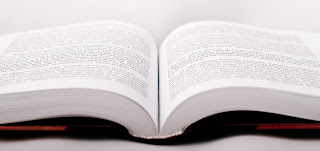 |
| Pexel |
1.
Readers will read. Regardless
to format or income or legality.
2.
Something to remember: The
Prophet was illiterate.
3.
The first verse the Prophet
received was: “Read.”
4.
You don’t have to finish
every book you’ve started. Time is valuable, books are endless. Even if you’ve
spent thirteen hours trudging through the Infinite Jest. When it’s time
to quit, quit.
5.
Guilt is a useless emotion.
There is only one course of action to deal with it: Learn. Move on.
6.
Sometimes it’s alright to
trust the Bestseller lists.
7.
Not a lot of books on the
bestsellers lists have the power to educate, entertain or express eloquently. That
said,
8.
Even some bad books
have something to teach. Even if the only lesson they teach is “How to write a
bad book.”
9.
There is no such thing as
wasted time reading great literary fiction. The most obvious effects from
reading well-written fiction is the changes in the quality of your thoughts. The second
best thing is the quality of your conversations. Hence, the improved quality of friends you keep. (Three cheers to the Sekuts.)
10. Minds evolve with books. The more books you read, the more you
know. Eventually…
11. The more you know, the richer a heart you grow. A rich heart is visibly less bored, never lonely even in solitude. (This is why readers make highly-adjusting world travelers.)
12.
13. If you only have space for one self-help book for the rest of your life, read something written by a formerly Jewish Atheist, whose hypotheses on happiness are firmly based on religious script and social sciences. If you have room for THREE self-help books, read something by a Nobel Prize winner and this thing by a Stanford University lecturer. All three books honor the biology of human behavior.
14. There is no point in overdoing the book recommendations. You need to find
your own groove in the world.
15. Intelligence is overrated. More powerful than IQ is the compassion to say NO to a lot of things. Saying NO takes muscle. Muscle takes practice. You get where I'm going?
16. Reading is a skill; it can be learned. You can train to read
faster, or deeper. You can train to read from audiobooks, ebooks and on the go. You can learn to forgo paper books and social media because you know your limits and priorities. You
can might never get used to the sacrifices you make in order to keep doing the things you love. But you do anyway. Growing up is a
skill.
17. It’s not about quantity of books. It’s always about quality and
your relationship with the books you read. It’s about what you do
with what you know that matters.





.JPG)
